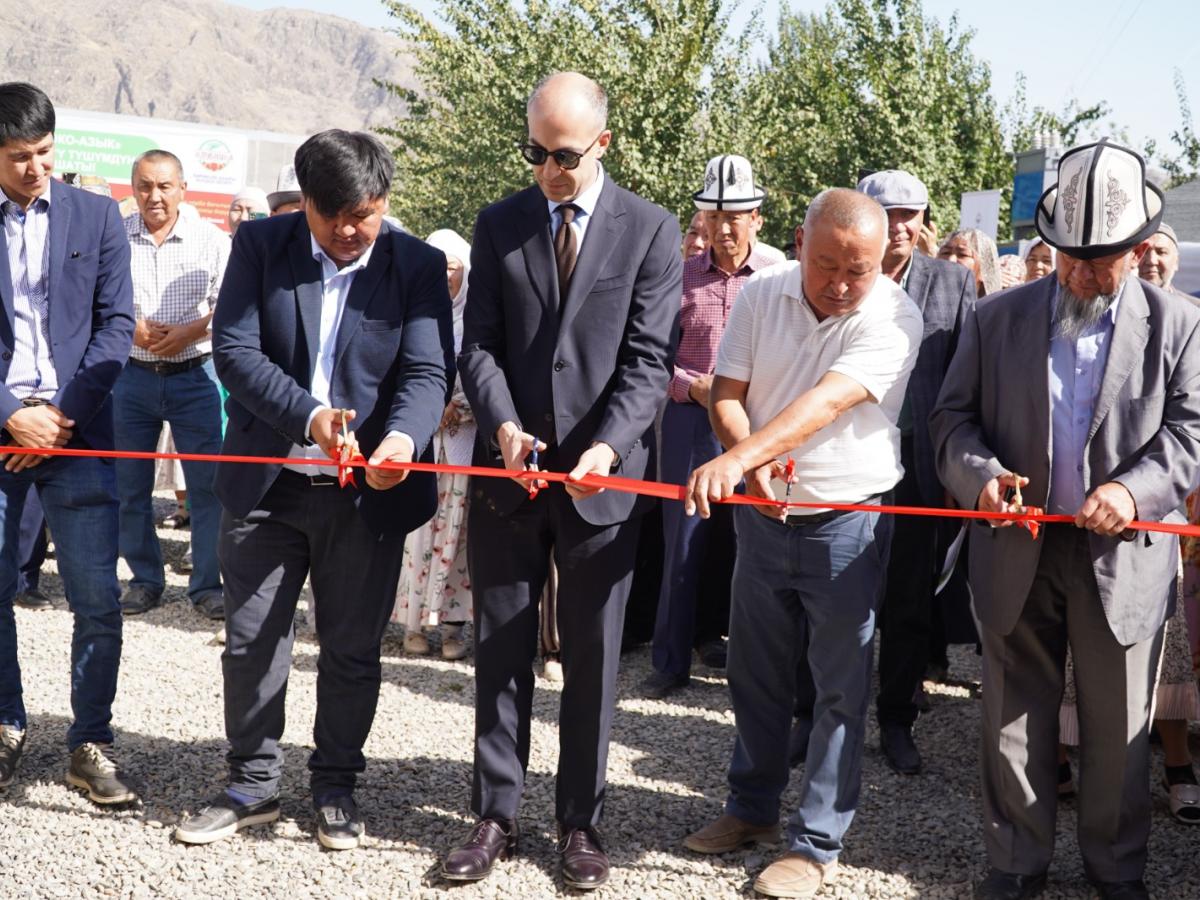For Immediate Release
Press Release
Osh, September 7, 2023 - A new cold storage facility in Osh Oblast equipped by the U.S. government – through the U.S. Agency for International Development (USAID) – will boost incomes for 300 farmers, provide additional jobs to the region, and provide quality produce for Kyrgyzstani families. Head of Japalak Local Administration Janybek Pasylov, USAID representative James Lykos, ECO Azyk LLC representatives, and other local partners participated in the inauguration ceremony.
USAID partnered with local business Eco Azyk LLC to provide cooling equipment worth 6,910 million KGS for a cold storage facility in Japalak village of Osh Oblast. With this new equipment, the facility can freeze and store up to 300 tons of fruits and berries for domestic and international markets. In addition to the economic benefit to farmers and employees, the facility will increase produce shelf-life so that produce is available for Kyrgyzstani families long after the growing season.
“One of the benefits of using cold storage is that the cold delays chemical changes and growth of microorganism enzymes in foods. Simply put, 90% of berries can now maintain their freshness during storage,” said Ali Tavaldiev, head of ECO Azyk LLC.
Tavaldiev said, “We believe that our joint efforts will build farmers' capacity to apply improved technologies and management practices, leading to increased sales and exports.” “Cold storage preserves fruits and vegetables, reducing spoilage. By reducing waste, cold storage boosts smallholder farmers’ profits. This also allows farmers and companies to provide high-quality products in the off-season and meet consumer demand,” noted James Lykos, Director of the USAID/Kyrgyzstan Economic Development Office.
USAID, through its Agro Trade Activity, has been partnering with Kyrgyz firms to establish 20 new cold storage facilities in the Kyrgyz Republic’s southern region since 2018. With 12,000 tons of total storage capacity, these facilities will expand cold storage capacity in the region by over 200%, have the potential to decrease food spoilage by 40%, and create new income generating activities for over 4,000 farmers.

